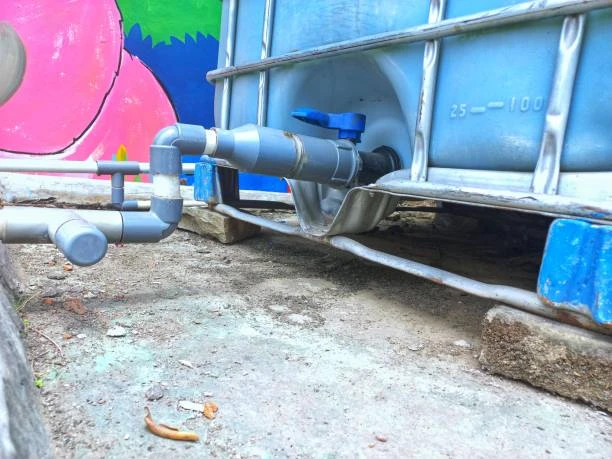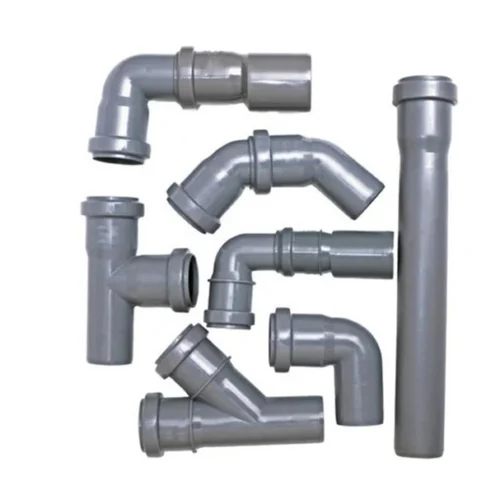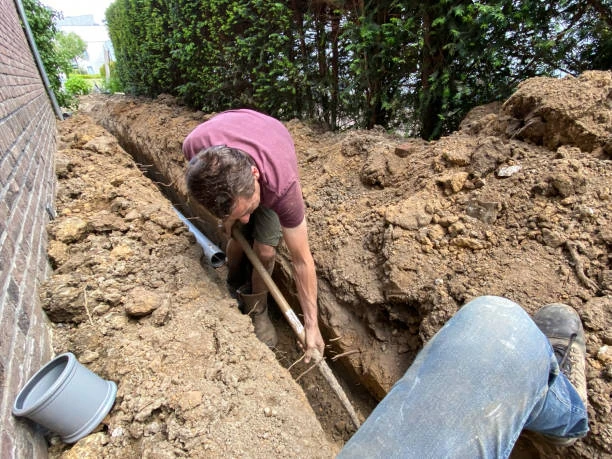Introduction
Choosing the right pipe material is essential for any project. Steel and plastic pipes dominate the market. Both materials offer unique benefits and challenges. However, plastic pipes continues to gain popularity for its versatility, cost-effectiveness, and sustainability. This article explores key considerations when comparing steel and plastic pipe.
Plastic Pipes Provides Lightweight Advantages
Plastic pipe is much lighter than steel, making it easier to transport and install. This feature reduces labor costs and project timelines. Contractors favor plastic pipe for applications requiring quick and efficient installation.
Plastic Pipes Outperforms Steel in Corrosion Resistance
Unlike steel, plastic pipe does not corrode when exposed to moisture, chemicals, or harsh conditions. This makes plastic pipe ideal for water systems, chemical transport, and underground applications. Corrosion resistance extends its lifespan significantly.
Plastic Pipe Reduces Installation Costs
Plastic pipe lowers installation costs compared to steel. Its lightweight nature requires fewer resources for handling and placement. Additionally, plastic pipe often uses simpler joint systems, saving time and labor expenses.
Durability Makes Plastic Pipes a Reliable Choice
Plastic pipe offers excellent durability, particularly in challenging environments. It withstands temperature variations, impact, and pressure without deforming or breaking. Modern manufacturing techniques ensure that plastic pipe meets high durability standards.
Plastic Pipe Supports Sustainability Goals
Plastic pipes plays a significant role in promoting sustainability by minimizing resource consumption throughout its lifecycle. Unlike traditional materials, plastic pipes are often manufactured using recycled plastics, which reduces the demand for virgin raw materials and supports circular economy initiatives. This process not only decreases plastic waste in landfills but also helps conserve natural resources that would otherwise be used in production.
Furthermore, the manufacturing of plastic pipes requires considerably less energy compared to the energy-intensive processes involved in producing steel pipes. Plastic pipes are lightweight, which further reduces energy consumption during transportation, as fewer fuel resources are needed to move them from production facilities to project sites. This efficiency translates to lower carbon emissions, contributing to a reduced environmental footprint for construction and infrastructure projects.
By integrating recycled content, reducing energy use, and improving transport efficiency, plastic pipes provide an environmentally friendly alternative that aligns with global sustainability goals. Their eco-conscious production process makes them a preferred choice for industries aiming to meet stricter environmental standards while delivering long-lasting performance. This combination of resource efficiency, energy savings, and reduced emissions highlights the role of plastic pipe as a sustainable solution for modern infrastructure needs.

Plastic Pipes Excels in Water Distribution Systems
Water distribution systems benefit greatly from plastic pipes. Its smooth interior surface prevents buildup, ensuring efficient water flow. Unlike steel, plastic pipe does not degrade, keeping water systems clean and operational for decades.
Steel Pipes Offer Strength for High-Pressure Needs
Steel pipes excel in high-pressure applications where strength is critical. Industries like oil, gas, and heavy construction rely on steel. However, plastic pipe is evolving and now competes in moderate-pressure systems.
Plastic Pipe Requires Less Maintenance Than Steel
Steel pipes require regular maintenance to prevent rust, corrosion, and blockages. Plastic pipe, on the other hand, requires minimal upkeep. Its resistance to environmental damage ensures long-term performance with less intervention.
Plastic Pipes Provides Better Cost Efficiency Over Time
While steel pipes may appear more robust, plastic pipes proves cost-efficient in the long run. Its low maintenance, installation, and replacement costs add up to significant savings.
Plastic Pipe Flexibility Allows Versatile Applications
Plastic pipes is highly flexible, making it ideal for diverse applications. It can navigate uneven terrain and tight spaces where rigid steel cannot. This flexibility reduces the need for complex fittings or adjustments.
Conclusion
When comparing steel and plastic pipes, plastic pipes stands out for offering numerous distinct advantages that cater to modern infrastructure needs. One of its most notable benefits is its exceptional resistance to corrosion, making it ideal for use in environments where moisture, chemicals, or soil conditions could compromise traditional steel pipes. In addition to being corrosion-resistant, plastic pipes provides significant cost-efficiency, as its lightweight design reduces transportation, labor, and installation costs. Furthermore, plastic pipes contributes to sustainability efforts by incorporating recycled materials and requiring less energy to manufacture and transport compared to its heavier steel counterpart.
Its lightweight nature simplifies handling and installation, even in remote or challenging project locations, while its durability ensures it performs reliably under varying conditions, including temperature changes and environmental stress. The versatility of plastic pipes further allows it to be used across a broad range of applications, including water distribution, plumbing, irrigation, and chemical transport, where flexibility and efficiency are key requirements.
While steel pipes remain indispensable for extremely high-pressure environments and certain industrial applications, advancements in plastic pipes technology continue to close the performance gap. As a result, plastic pipes is increasingly recognized as a dependable, long-term solution that meets the evolving needs of industries while supporting cost savings, durability, and environmental responsibility. This growing preference for plastic pipes highlights its role as a forward-looking alternative in today’s infrastructure projects.
FAQs
- What are the main advantages of plastic pipes over steel?
Plastic pipes is lightweight, corrosion-resistant, cost-effective, and requires less maintenance. - In which applications is plastic pipes most commonly used?
Plastic pipes is ideal for water systems, plumbing, irrigation, and chemical transport. - How does plastic pipes contribute to sustainability?
Many plastic pipes use recycled materials and require less energy to produce and transport. - Does plastic pipes work in high-pressure systems?
Plastic pipes works well in moderate-pressure systems, but steel excels in extreme high-pressure applications. - Is plastic pipes easier to install than steel pipes?
Yes, plastic pipe’s lightweight design and simple joint systems make installation faster and more cost-effective.


















